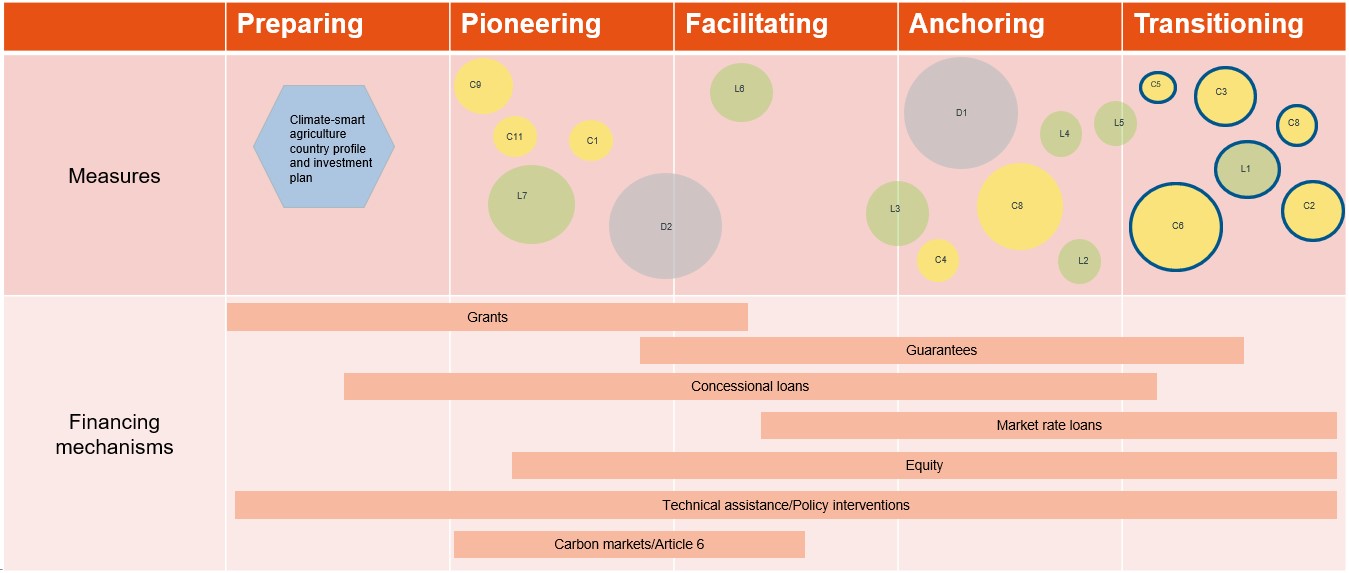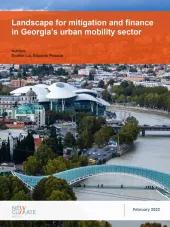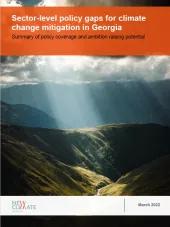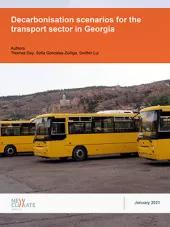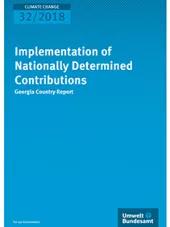Climate Smart Agriculture practices in the context of Georgia’s climate mitigation efforts
This report provides an overview of the landscape for mitigation action in the agriculture sector in Georgia, and potential access points for international climate finance. It presents a comprehensive mapping of mitigation options available in the subsector, along with analysis on the measures’ mitigation potential, abatement costs, key barriers of uptake, financing options, and applicability to the Georgian context. The results can be used by policymakers and institutions to advance the planning, financing and implementation of Georgia’s agriculture sector targets and objectives as presented in Georgia’s NDC, 2030 Climate Strategy and 2021-2023 Action Plan.
Main findings:
Our study finds that there are many attractive actions to mitigate emissions in the agriculture sector. Many of these measures require technology or practices already available in Georgia, have neutral to low abatement costs and have considerable mitigation potential, but are hindered by current land-tenure regulation. These are mostly cropland measures such as low tillage, agroforestry promotion, synthetic fertilizer management, plant management and organic production, as well as some livestock measures like feeding optimization. Low cost measures whose readiness is not as advanced in Georgia and are not hindered by land tenure regulation include further livestock measures such as manure management, feeding optimisation, breeding optimisation, health & disease prevention and direct methane capture, although these face different challenges, namely the prevalent small scale of livestock farming.
Our study also performs an initial assessment of the potential sources of finance for the implementation of these measures, depending on the perceived technological/practice readiness and estimated abatement costs. A general indication of appropriate financial mechanisms is also provided. 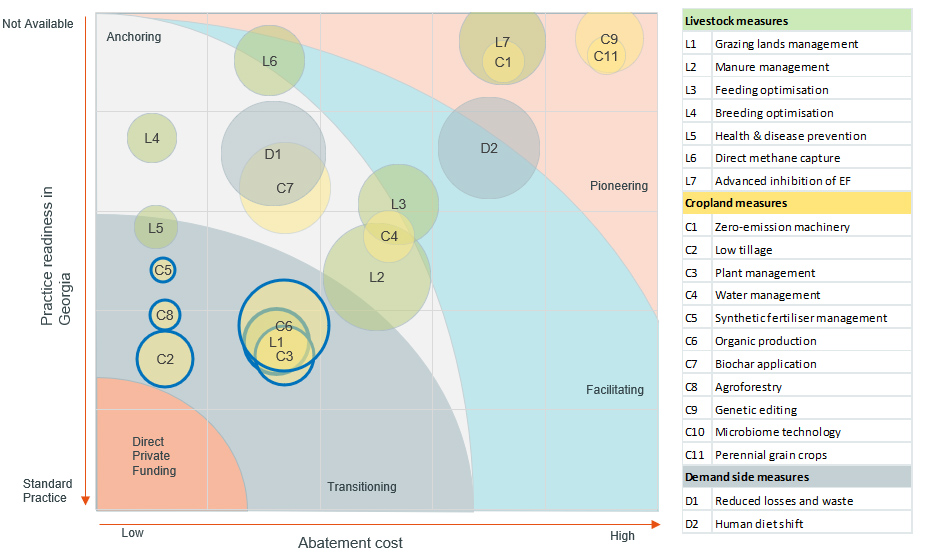
Starting from the basis of Georgia’s 2030 National Climate Strategy and 2021-2023 Action Plan (CASP), the report details some of the additional benefits of decarbonising the agriculture sector, mostly through synergies with the EU association agreement, Sustainable Development Goals (SDGs) and other National planning documents as the Third National Environmental Action Programme (NEAP-3), the Rural and Agricultural Development Strategy and the National Environment and Health Action Plan (NEHAP-2).
Finally, the report outlines some recommendations to coordinate enhanced action in the sector, namely to increase the awareness of the implications of the Paris Agreement for the agriculture sector, prioritise information exchange and farmer’s training, effectively address the main barriers to implementation of the analysed measures and develop concrete policy feasibility studies and proposals for the measures within grasp.

